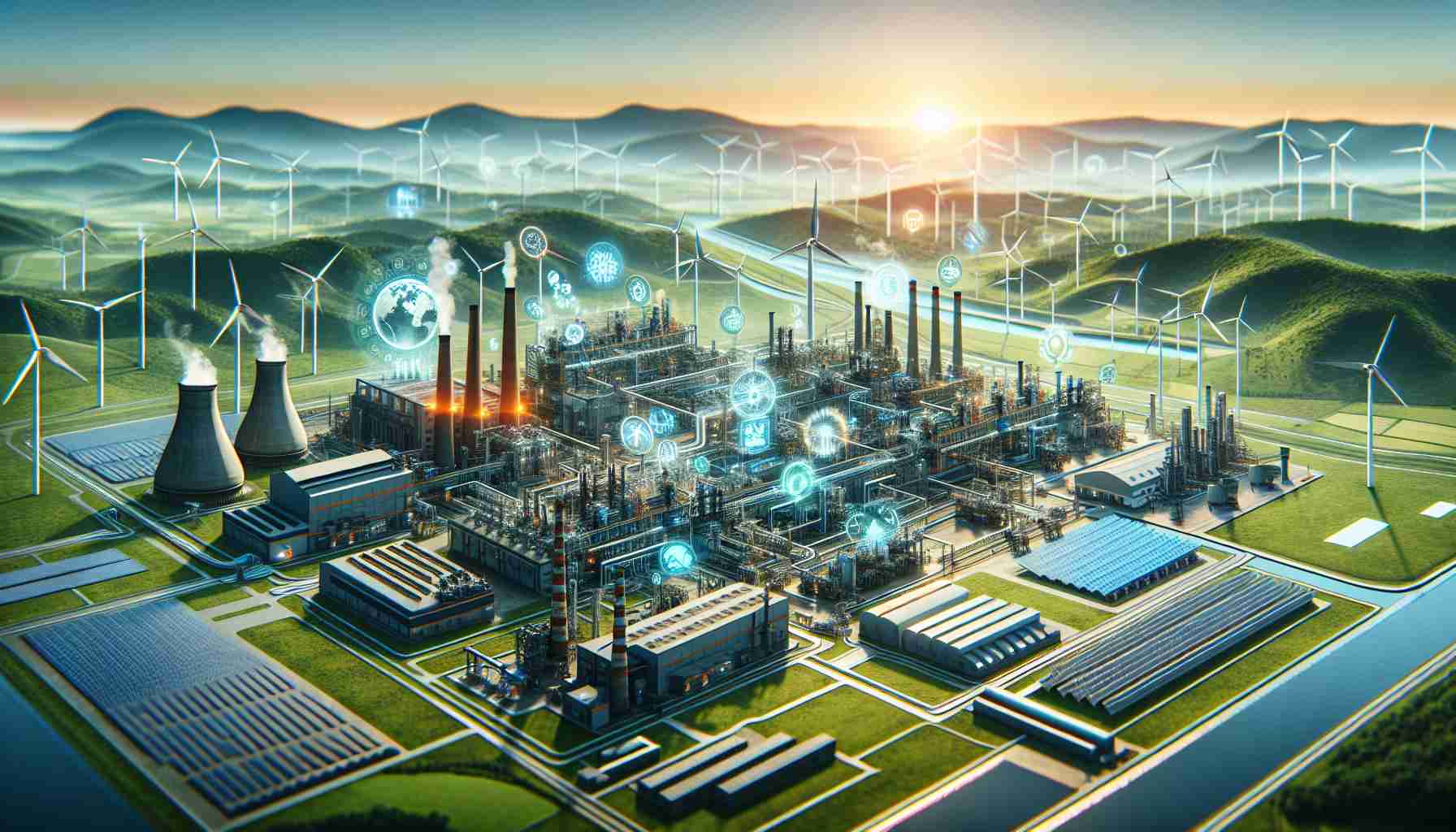
Panasonic is setting a new standard for renewable energy utilization in manufacturing. The company has successfully launched a cutting-edge solar-powered hydrogen fuel cell project at its Cardiff, Wales facility, which specializes in microwave oven production. This innovative system combines hydrogen fuel cells, photovoltaic panels, and advanced storage batteries to create a sustainable energy cycle within the factory.
To ensure optimal energy use, Panasonic has installed 21 robust hydrogen fuel cell generators, each with a capacity of 5 kW. This setup is meticulously designed to match the electricity needs of the assembly line, enhancing the factory’s efficiency. By harnessing green hydrogen produced within the UK, the environmental impact of production is significantly reduced.
In conjunction with this initiative, Panasonic aims to implement an advanced energy management system. Scheduled to launch by March 2025, this system will closely monitor fluctuations in electricity demand and local weather conditions, guaranteeing a steady supply of renewable energy for factory operations.
Furthermore, the facility will utilize heat generated during the hydrogen power production process for space heating and hot water, pushing efficiency levels to an impressive 95%. This comprehensive approach to energy management not only supports Panasonic’s commitment to sustainability but also positions the facility as a model for future innovation and collaboration in the hydrogen sector.
Panasonic Pioneers Sustainable Manufacturing with Innovative Energy Solutions
Panasonic’s Groundbreaking Renewable Energy Initiative
Panasonic continues to lead the way in renewable energy utilization within the manufacturing sector through its latest solar-powered hydrogen fuel cell project at its facility in Cardiff, Wales. This initiative positions Panasonic as a formidable force in sustainable manufacturing, blending cutting-edge technology with environmental responsibility.
Key Features of the Project
1. Hydrogen Fuel Cell Generators: The Cardiff facility boasts 21 hydrogen fuel cell generators, each providing 5 kW of power. This design ensures that the energy produced aligns perfectly with the energy demands of the assembly line, optimizing operational efficiency.
2. Green Hydrogen Production: By sourcing green hydrogen produced within the UK, Panasonic significantly reduces the carbon footprint associated with its manufacturing processes. This approach aligns with the UK’s broader efforts to promote renewable energy resources and transition to a green economy.
3. Advanced Energy Management System: Set to launch by March 2025, this system will monitor changes in electricity demand and local weather patterns. This ensures a reliable supply of renewable energy while maximizing efficiency and minimizing waste.
4. Heat Recovery Utilization: The project not only focuses on electricity generation but also employs heat generated from hydrogen power production for space heating and hot water needs, achieving an impressive overall efficiency rate of 95%.
Pros and Cons of Panasonic’s Initiative
Pros:
– Environmental Impact: Significantly reduces greenhouse gas emissions.
– Energy Efficiency: High efficiency and effective use of renewable resources.
– Innovative Technology: Incorporation of advanced systems for energy management.
Cons:
– Initial Costs: High upfront investment in technology and infrastructure.
– Dependence on Weather: Effectiveness may vary with fluctuating weather conditions affecting solar energy production.
Use Cases
Panasonic’s innovative approach not only serves its own production goals but also acts as a blueprint for other manufacturers aiming to enhance sustainability. Companies across sectors can examine this model to implement similar renewable energy solutions, reducing their environmental impacts while maintaining production efficiency.
Market Trends and Innovations
The project comes at a time of increasing pressure on industries to adopt more sustainable practices. According to market analysts, the global push for renewable energy is expected to grow, with hydrogen fuel cells becoming a central element in this transition. Innovations in energy management systems are also anticipated to rise, offering smarter solutions for energy consumption and efficiency.
Security Aspects
While renewable energy technologies, such as hydrogen fuel cells, are generally safe, it remains essential for companies to address potential risks associated with hydrogen production and storage. Stricter regulations and industry standards are likely to emerge, focusing on safety protocols and environmental protections.
Sustainability Insights
Panasonic’s initiative reflects a broader trend in corporate sustainability, highlighting the importance of integrating renewable energy sources into operational frameworks. This move not only benefits companies in terms of regulatory compliance but also enhances their brand reputation among increasingly environmentally conscious consumers.
For more insights on sustainable innovations in manufacturing, visit Panasonic.



